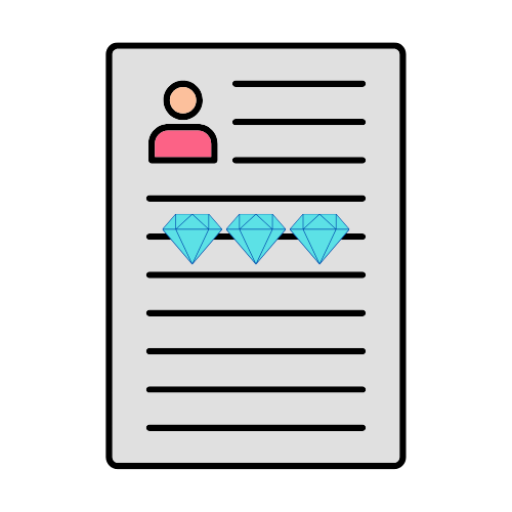A Project Manager is responsible for planning, executing, and closing projects while ensuring they are completed on time, within scope, and within budget. They coordinate resources, manage teams, and communicate with stakeholders to align project goals with organizational objectives. Additionally, they identify risks and implement strategies to mitigate them, ensuring that project deliverables meet quality standards. Understanding these core responsibilities will help candidates effectively address interview questions related to their experience and approach to project management.
However, before you can land the role, you’ll need to excel in the interview process. To help you prepare, we’ve compiled 10 essential Project Manager interview questions, along with sample answers to the most critical ones. These questions will give you insight into what hiring managers are looking for and help you showcase your skills and experience effectively.
Interview Questions for a Project Manager
- Tell me about your most successful project. What made it successful, and how did you contribute to that success?
- How do you handle team conflicts or challenging team dynamics?
- Can you describe a project you managed from start to finish? Walk us through your approach and methodology.
- How do you prioritize tasks in a project?
- What project management tools and methodologies are you familiar with, and how do you apply them?
- How do you manage project risks and unexpected challenges?
- Describe a time when a project didn’t meet its deadline or budget. How did you handle it, and what did you learn?
- How do you communicate with stakeholders and manage their expectations throughout a project?
- What’s your approach to resource allocation and budget management in projects?
- How do you ensure team collaboration and motivation throughout a project’s lifecycle?
Sample Answers for the Top 4 Interview Questions
Tell me about your most successful project. What made it successful, and how did you contribute to that success?
What they’re looking for:
Interviewers ask this question to gauge your ability to lead successful projects and understand your definition of success. They want to see how you measure project outcomes, your role in achieving those outcomes, and your ability to articulate the factors that contribute to a project’s success.
Sample response:
In my previous role, I led a cross-functional team to implement a new customer relationship management (CRM) system for our company of 500 employees. The project was successful because we completed it two weeks ahead of schedule and 5% under budget, while achieving a 98% user adoption rate within the first month. My contribution to this success involved creating a detailed project plan, conducting thorough stakeholder analysis, and implementing a comprehensive change management strategy. I also established clear communication channels and held regular check-ins with team members and stakeholders, which allowed us to identify and address potential issues early on.
Tips for Tailoring Your Response:
When answering this question, focus on a project that aligns closely with the role you’re applying for and highlight skills that are relevant to the job description. Be sure to quantify your success metrics where possible and emphasize your specific actions that led to the project’s success. Remember to balance your explanation between the project’s overall success and your individual contributions to demonstrate both leadership and teamwork skills.
How do you handle team conflicts or challenging team dynamics?
What they’re looking for:
Interviewers ask this question to assess your leadership and conflict resolution skills. They want to understand your approach to managing interpersonal issues within a team and your ability to maintain productive and positive team dynamics in challenging situations.
Sample response:
In a recent project, I faced a situation where two team members had conflicting views on the technical approach for a critical deliverable. The tension was affecting team morale and threatening our timeline. To address this, I first met with each team member individually to understand their perspectives fully. Then, I organized a mediated discussion where both parties could present their ideas. I facilitated an open dialogue, encouraging constructive feedback and guiding the conversation towards finding common ground. By focusing on the project’s objectives and fostering a collaborative environment, we were able to reach a compromise that incorporated the strengths of both approaches. This resolution not only solved the immediate conflict but also strengthened team cohesion, ultimately leading to the successful completion of the project ahead of schedule.
Tips for Tailoring Your Response:
When crafting your answer, think of a specific example from your experience that demonstrates your conflict resolution skills. Focus on the actions you took to address the issue and the positive outcomes that resulted. Be sure to highlight your communication skills, empathy, and ability to find win-win solutions, as these are crucial for effective team management.
Can you describe a project you managed from start to finish? Walk us through your approach and methodology.
What they’re looking for:
Interviewers ask this question to evaluate your project management experience and methodology. They want to understand your approach to planning, executing, and closing projects, as well as your ability to apply project management principles in real-world scenarios. This question also allows them to assess your communication skills and your capacity to explain complex processes clearly.
Sample response:
I recently managed a website redesign project for a major client from inception to launch. The project involved overhauling the client’s e-commerce platform to improve user experience and increase conversions. I began by conducting a thorough needs assessment and stakeholder analysis, which informed our project charter and scope definition. Using an Agile methodology, I broke the project into two-week sprints, each with specific deliverables. Throughout the project, I held daily stand-ups with the development team, weekly progress meetings with stakeholders, and bi-weekly sprint reviews and retrospectives. We used Jira for task management and Slack for team communication. When we encountered a delay due to unexpected technical issues, I reallocated resources and adjusted the sprint schedule to keep us on track. The project was completed on time and within budget, resulting in a 30% increase in the client’s online sales within the first quarter post-launch.
Tips for Tailoring Your Response:
When answering, choose a project that showcases your versatility and aligns with the role you’re applying for. Be sure to highlight specific methodologies, tools, and techniques you used, and explain how they contributed to the project’s success. Don’t forget to mention how you handled challenges or unexpected issues, as this demonstrates your problem-solving skills and adaptability.
How do you prioritize tasks in a project?
What they’re looking for:
Interviewers ask this question to assess your organizational skills and ability to manage multiple tasks effectively. They want to understand your decision-making process when it comes to allocating time and resources, and how you balance competing priorities to ensure project success. This question also reveals your strategic thinking and your ability to align tasks with overall project goals.
Sample response:
In a recent software development project, I faced the challenge of managing numerous tasks with tight deadlines. To prioritize effectively, I first categorized tasks using the Eisenhower Matrix, which helped distinguish between urgent and important tasks. I then used the MoSCoW method (Must have, Should have, Could have, Won’t have) to further refine our priorities based on project requirements and stakeholder needs. For instance, we identified critical features as “Must haves” and scheduled them early in our sprint cycles. I also implemented a dynamic prioritization process, regularly reviewing and adjusting task priorities during our daily stand-ups to account for new information or changing circumstances. This approach allowed us to complete all essential features on time, resulting in a successful product launch that met all core client requirements.
Tips for Tailoring Your Response:
When crafting your answer, focus on describing a specific prioritization method or tool you’ve used successfully in the past. Explain how your approach helped achieve project goals and demonstrate your ability to adapt your prioritization strategy based on project needs. Be sure to highlight how your method takes into account factors such as deadlines, resource constraints, and stakeholder expectations, as these are crucial considerations in effective task prioritization.




